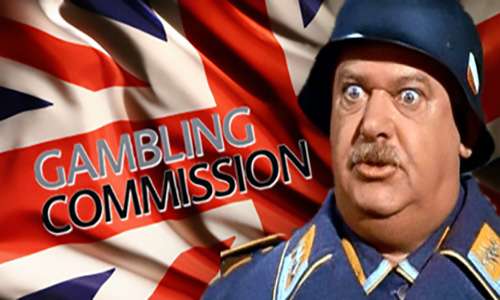UKGC Reviewing Online Poker Regulations
The United Kingdom Gambling Commission (UKGC) announced last week that it is in the process of reviewing its own UK online poker regulations in order to make sure they are “sufficient to ensure online poker is crime free, fair and open and children and vulnerable people are protected.” The first step in the review: investigate third-party software and bots.
The Commission was created by the Gambling Act of 2005, with the goal of regulating commercial gambling in the United Kingdom. It issues gaming licenses and works to keep gambling crime free, ensure that all games are on the up-and-up and transparent, and make sure children and problem gamblers have sufficient protection. The Commission covers everything from online gambling to land-based casinos to lotteries; in 2013, it took over the National Lottery Commission.
In a short press release, the UKGC explained that the first stage in the regulatory review is to investigate third-party software and bots in online poker and how they could be related to cheating and collusion. In the statement, a spokesperson for the UKGC said:
We’ve been asking licensees who offer peer-to-peer poker for information and their views on current issues identified in relation to this product.
We want this information in order to assess whether the current controls in Licence Conditions and Codes of Practice (LCCP) and the Remote Gambling and Software Technical Standards (RTS) are sufficient to ensure online poker is crime free, fair and open and children and vulnerable people are protected.
We are also considering the impact of game integrity issues overall and using the opportunity to canvass views more generally.
This review comes at a time during which many companies in the online poker industry are making a hard push against third-party software and are taking steps to protect inexperienced and weaker players from the more experienced “sharks.” Now, that may sound like poker rooms want to somehow artificially prop-up lesser-skilled players and shield them from losing, but that’s not the case. Poker rooms actually want losing players, as players who lose their money are the ones who have to re-deposit, thus injecting more cash into the poker economy and more rake into the gaming firms’ coffers.
What the online poker rooms want is a level playing field in which a player’s success is determined by their skill (and some luck, of course). Naturally, beginners and players who just simply aren’t good at poker will not do as well as those who have a lot of experience, are naturally gifted, and/or have studied to improve their game. That is fine and that is how it should be. The problem comes in when those experienced players use third-party software to artificially increase their advantage over the weaker players.
Software that keeps records of a player’s hand histories and helps the user analyze their play have been around for years and while the poker community is divided in their opinions of them, they are generally considered fine to use. More and more, though, add-ons have been developed to take the data collected and use it to do things like automate decision making, find weak players immediately upon logging in, and automatically seat the user at a targeted player’s table. They have gotten to the point where the users of these types of software are acting like hunters stalking their prey. The targeted players often catch on and realize they are being abused, resulting in them not having fun and eventually leaving the poker room altogether.
The poker rooms have been changing their policies and software lately to combat predatory players. PokerStars, for instance, has banned seating scripts for Spin & Go tournaments and sounds like it will likely ban them completely from all games. It has also increased its restrictions on any functions that allow third-party software to automate a player’s actions and decision making. partypoker will be eliminating locally stored and e-mailed hand histories, restricting hand history look-ups to the past twelve months and keeping it in the client software. Hand tracking software uses text files of hand histories stored on the player’s hard drive to import data, so partypoker’s change will limit or entirely remove the ability for third-party software to keep statistics on players. The poker room will also require players to join a group waiting list for cash games rather than offer the ability to select a table and seat and will make the identities of opponents known only when a player’s first hand at the table is about to be dealt.
Full Tilt took a similar measure earlier this year, eliminating seat selection from the cash game lobby, thus foiling players who wish to hunt down they prey throughout the lobby. The Microgaming Poker Network (MPN) has instituted the ability to change one’s screen name every 30 days or every 1,000 real money hands, whichever comes first.



















COMMENTS